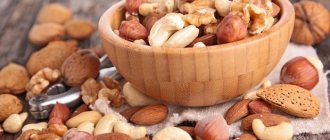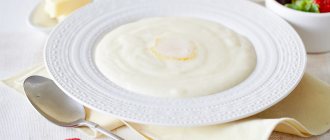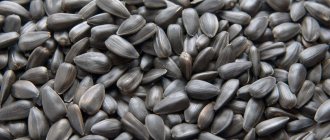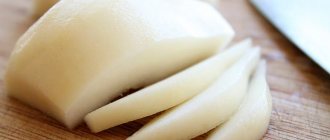Benefit
Sugar breaks down into three elements: glucose, fructose and lactose. This product is the main source of energy. Moreover, it is accessible to everyone.
Carbohydrates are needed for the absorption and production of other useful substances and the full functioning of the body. Sugar consumption:
• increases lactation; • helps fight stress; • normalizes sleep; • relieves fatigue; • and improves mood.
Sucrose gives energy and strength. It also triggers the mechanism of pleasure, which affects the psychological stability of a woman during this difficult period. The mother of an infant spends a lot of energy caring for her child. A nursing mother, moreover, gives away all the beneficial substances with milk. This can lead to exhaustion of the body. Therefore, sugar is simply necessary as part of a complete diet. Another question is how much sugar can you eat without harming the child and how will his body react to this?
What can a nursing mother eat if she really wants something sweet?
Let's figure out what you can replace sugar with. Which sweets will not harm your baby, and which desserts are best to avoid?
You can (if the baby is not allergic to these products):
- marshmallows (without additives);
- marmalade (without additives and dyes);
- dried fruits (only in moderation, as they can cause bloating in the baby);
- fruits (such as bananas or apples);
- sweet dairy products (yogurt, cottage cheese without additives);
- condensed milk from a trusted manufacturer;
- homemade jam, marmalade, jam;
- kozinaki, halva;
- occasionally a couple of slices of dark chocolate.
It is forbidden:
- carbonated drinks;
- milk or white chocolate, sweets;
- cakes and pastries;
- store-bought waffles and cookies.
The effect of sugar on a child
During breastfeeding, the baby receives all useful substances only from the mother. His health depends on her “eating behavior.” Sugar can affect a child in different ways. For development, a child’s body needs glucose and lactose, and not pure sugar. Lactose is part of mother's milk, so it does not need to be consumed additionally in the form of food additives.
• lactose contributes to the normal functioning of the baby’s digestive tract; • participates in the formation of healthy microflora; • improves the absorption of iron, calcium and vitamins.
• normal functioning of internal organs; • functioning of physiological processes, including respiration, cardiac activity, temperature regulation; • energy for vital activity and restoration of the body; • maintaining the functioning of the nervous system; • development of brain tissue.
Mom needs to pay attention to the baby’s reaction when sugar is included in the diet. The harm from it may be that diathesis or other allergic reactions in the form of swelling or rash may appear. In this case, sugar-containing products are excluded from the menu first. Initially there may be no symptoms, but as sugar accumulates in the child’s body, signs of intolerance will appear.
You need to pay attention to this if a nursing mother likes to eat sweets, cakes or buns. The load on the baby's organs will be very strong. This may cause digestive problems, colic and bloating.
Ambiguity of the situation
It is difficult to understand exactly how sugar can be harmful to human health. This hypothesis is quite difficult to refute, because both adults and small children love sweets very much. It is impossible to understand how sugar can be detrimental to health when it helps maintain vitality, mood and, on top of that, gives energy for a long time.
The question of whether it is possible to eat sweets while breastfeeding remains open to this day.
Some mothers are of the opinion that a sweet product cannot in any way harm the health of their child. By receiving all the necessary carbohydrates through mother's milk, the newborn's body should only become healthier and stronger. Others are completely confident that by receiving milk with sugar, the child’s chance of developing food allergies and colic increases significantly.
Is it possible to use sugar while breastfeeding? A question for which there is no clear answer. Each woman decides it independently, taking into account the individual characteristics of the whole organism. After all, one mother’s body will be able to cope well with sugar in its pure form, while another woman’s body may not react very well.
Sugar-containing foods – what should you avoid?
When feeding your baby, it is unwise to completely give up sweet foods. But it is necessary to exclude those products that can cause harm to a small organism. Almost all types of store products contain sugar, as well as aromatic substances and spices. Even products that do not have a distinct sweet taste are made using large amounts of sugar. If possible, you should temporarily give up store-bought food and eat home-cooked meals.
• bananas; • grape; • pastries and cakes; • curd cheeses; • buns; • carbonated drinks; • chocolate and candies.
Competent solution to the issue
It is often written in the literature that the usual sugar consumed during breastfeeding can be replaced with brown or cane sugar. Fructose is also perfect in this situation.
Fructose has many beneficial properties, among which a special place is occupied by the replenishment of the human body with vitamins and minerals. It is very important not to overdo it with the amount of sweets. When breastfeeding, the following products are strictly prohibited:
- Cake, pastries.
- Sweet buns.
- Bananas.
- Grape.
- Chocolate. Cheesecakes with cottage cheese.
- Honey.
- Porridge with sugar.
- Cake with condensed milk.
The danger of such products is that they provoke the process of fermentation in the intestines, which can not have the best effect on the well-being of the mother and her baby. Although each case is strictly individual, milk does not always result from a deterioration in a woman’s general well-being.
Harm and alternative to sugar
For the mother, sugar does not pose any particular danger. But, if you get carried away with foods rich in carbohydrates and sugar, you can end up with a malfunction of the endocrine and immune systems. The habit of eating a lot of sweets during pregnancy and lifestyle changes when a child is born can lead to weight gain, tooth decay, diabetes and other undesirable consequences. Therefore, the volume of products that contain sucrose should be reduced. You can replace this substance with fructose or consume more fruits and berries. Raw cane sugar, which contains vitamins and minerals, is considered less harmful.
By composing the correct diet, a nursing mother provides all the useful substances not only for herself, but also for her baby. To increase lactation, it is not necessary to increase portions, you need to improve the quality of food. For the growth of a healthy child, the mother must adhere to a well-formulated diet. You shouldn’t completely give up your main source of energy – sugar. You just need to use it correctly and adjust the amount. Habitual treats need to be replaced with healthier ones.
Very often a nursing mother wants to eat something sweet. It could be just tea with sugar or a delicious cake. This desire for something tasty can be easily explained: when breastfeeding, a lot of energy is expended. However, often the mother is in a state of stress and anxiety. Sleepless nights and breastfeeding also take away the strength of the nursing mother.
With the help of sugar or another sweet product, you can lift your mood and saturate the body with carbohydrates, which give the body strength and energy.
Features of the diet for breastfeeding
First of all, the diet must be followed because the foods consumed end up in the milk, and, therefore, in the child’s body. Since the gastrointestinal tract is not yet fully formed, most foods that come with milk cause colic in the baby. A nursing mother has to give up salty, peppery, highly sweet, fried and smoked foods, and switch to fresh foods. But sometimes you really want to treat yourself to something sweet, because glucose still lifts your mood, and this is necessary in the first months of motherhood.
At first, you might think that there is no need to give up sugar and switch to substitutes. But there are several reasons why a woman may still refuse it:
- the presence of high blood glucose in a nursing mother and the constant need to measure it;
- diseases of the brain or cardiovascular system, high blood pressure;
- excessive weight gain during pregnancy, fear of obesity;
- Artificial sweeteners do not harm teeth or destroy enamel.
Beneficial features
If you eat a product that contains a lot of carbohydrates, you can increase the level of the hormone serotonin. Thanks to this substance:
- the general tone of the body is normalized;
- the state of fatigue goes away;
- insomnia is eliminated;
- pain is relieved.
If a nursing woman does not have enough serotonin in her body, her mood may deteriorate. This makes you want to eat something tasty and sweet. Using regular sugar, you can also activate the production of the hormone endorphin, which is also called the “hormone of joy.” This is why you often want to treat yourself to something tasty.
It's hard to imagine that sugar can be harmful to humans. Especially considering that both adults and children love sweets. How can you harm your body with sugar, which helps lift your mood and gives you strength and energy? However, it is worth considering whether it benefits the body during breastfeeding?
One nursing mother thinks that there is nothing wrong with the baby receiving carbohydrates through milk, which will give him more energy. And other women are sure that this sweet product should not be consumed while breastfeeding, as it can cause allergies and colic in the infant.
Whether you can eat sugar or not, everyone decides for themselves. After all, everyone’s body is individual. Someone can indulge themselves with sweets and not have any troubles, while others limit themselves even to sweet tea so as not to cause problems with the well-being of the newborn.
Sweets during lactation
Often, a woman who has recently given birth to a baby wants to treat herself to something tasty (cake, various sweets). Most often, this desire becomes something sweet. Such an active need for carbohydrates can be simply explained by the fact that during breastfeeding, a woman’s body loses a large amount of energy, and, as is known, it also needs to be replenished. It’s not only when breastfeeding that a woman loses strength. The postpartum period is very often accompanied by constant nerves, worries and anxiety for the newborn baby. In order to somehow cheer up a young mother, you can use sugar. It will not only help improve your well-being, but will also help saturate the woman’s body with all the necessary carbohydrates. There is only one question left: can sugar be used in food while breastfeeding?
Is it possible or not?
But why then does the question arise, is it possible to eat sugar while breastfeeding? There are many processing steps involved during the production of this product. As a result, there are almost no beneficial substances left in sugar. And the body spends a lot of effort to digest the carbohydrates received. This can disrupt the endocrine and immune systems.
But you can’t immediately give up sweets during lactation. Sugar perfectly replenishes lost strength, and glucose, which is part of it, activates the work of the brain.
A nursing woman can eat fruits and vegetables, which contain glucose and fructose necessary for the body. Cane sugar is an excellent alternative to regular sugar. It is much healthier and contains a large amount of vitamins and minerals.
When breastfeeding, it is better to limit yourself to eating sweet buns, cakes, chocolate, candies and other similar foods. They can trigger the fermentation process in the intestines. But this may not be the case for everyone.
So that a nursing mother does not deprive herself of the pleasure of eating sweets, she can please herself with the following products:
- marshmallows;
- cake with yogurt and cottage cheese;
- marmalade made from natural ingredients;
- paste;
- baked apples;
- candied fruit;
- cane sugar.
These products contain much less heavy carbohydrates, which can negatively affect the baby's body. Therefore, it is better to replace familiar sweets with less harmful ones. Also, you should not use them every day, especially in the first month after childbirth.
Previously, doctors allowed condensed milk during breastfeeding. But in recent years they do not recommend it, since modern production uses substances that are harmful to a fragile child’s body.
When breastfeeding, each woman decides for herself what and how much she can eat, and what she should refuse. Through trial and error, new mothers try out many dishes every day that they loved to eat before the baby was born. After all, some of them can negatively affect the well-being of the newborn. But a nursing mother should not completely give up sweets. A few goodies can please the mother and not harm the child. The received dose of carbohydrates will help lift the mood and replenish the expended energy of a tired woman, and this is very important for the emotional state of not only the nursing mother, but also her baby.
Consumption of sugar in large quantities is harmful not only for nursing mothers, but also for other people. But in small doses it is even useful. After all, it lifts your mood and relieves fatigue, helps with depression and insomnia, and improves the overall tone of the body. The main thing is not to overeat sweets and not use chemical sweeteners when breastfeeding.
How can you replace white sugar during lactation?
Some people argue that there are many healthy alternatives to regular white sugar. Let's look at the most popular ones.
Cane sugar
Cane sugar is obtained from sugar cane. This is a raw (unrefined) product. It has several varieties:
- demerra;
- cassonade;
- turbinado;
- muscovado;
- black Barbados.
Brown sugar is 3 times more expensive than regular white sugar, since all its varieties are produced in exotic countries. This type of sugar is as harmful to health as white sugar. But due to the fact that it is purified, trace elements are retained in it:
- zinc;
- iron;
- phosphorus;
- magnesium.
White and brown sugar have approximately the same calorie content - 400 kcal per 100 grams of product. White sugar consists almost entirely of carbohydrates (98%), with the remaining 2% being sodium and calcium. Brown sugar contains 96% carbohydrates, and its additional composition was described above.
Brown sugar contains 96% carbohydrates
During breastfeeding, the doctor recommended that I use cane sugar in my food. She said that it is healthier for adult children than white. This may be true, but it costs more, and the taste is no different from white. At the same time, it contains only 3% more nutrients than regular white, so I still ate my usual refined pieces.
Video: how to choose cane sugar
Fructose
Fructose is a natural sugar found in some fruits and vegetables. It has a number of advantages compared to others:
- Low calorie content: when consuming it, a nursing woman does not have to worry about adding new kilograms.
- Safety for tooth enamel.
- Low allergenicity, ability to enhance immunity.
- Compared to sucrose, it has a sweeter taste, so when it is consumed, it quickly saturates.
- Does not cause fluctuations in blood sugar, which is very important for diabetes.
Fructose is ideal for making sweet desserts (jams, preserves), which will retain freshness for a long time due to the good moisture retention of this type of sugar.
Fructose is ideal for preparing sweet desserts (jams, preserves), which will retain freshness for a long time due to the good moisture retention of this type of sugar.
Ready-made fructose is sold in the store. It can also be obtained with berries and fruits. Fructose is contained in honey, so if this product does not cause allergies in the baby, then it can easily replace sugar. A nursing mother should also take into account the negative effects of fructose:
- Consumption of more than 30 g of product per day can provoke disturbances in the functioning of the cardiovascular system, acid-base balance, and liver.
- Excessive consumption of fructose is dangerous if you have diabetes.
- The components of fructose are well absorbed by the body, so after a short period the woman feels hungry again.
The calorie content of fructose is 399 kcal per 100 grams of product. It contains 98% carbohydrates.
Stevia
Stevia is a sweet herb native to South America. An aqueous sweet extract is produced from it, and the leaves of the plant are used for this. The herb has many types, but honey stevia is the most popular in the industry. It is used to produce food supplements and products intended for people suffering from obesity and diabetes.
This natural sweetener comes in the following forms:
- soluble tablets;
- syrup obtained by boiling an aqueous extract, added to food in drops;
- concentrated powder (stevoside) added to food and drinks at the tip of a knife;
One of the forms of stevia release is concentrated powder. - herbal tea in the form of filter bags, brewed using boiling water.
Stevia products are more expensive than white sugar. However, it has a number of advantages:
- does not raise blood sugar levels;
- helps lower blood pressure;
- normalizes digestion and does not cause heartburn;
- helps strengthen the heart;
- eliminates the development of arthritis and kidney diseases by reducing the concentration of uric acid in the body;
- does not increase weight.
A nursing woman should also take into account the negative effects of the product:
- risk of allergies;
- contraindication for hypotension;
- the possible occurrence of hypoglycemia (a drop in blood glucose levels to a critical level) due to frequent use of the product;
- the appearance of dizziness and nausea, pain and numbness in the muscles due to individual intolerance to the plant.
The calorie content of stevia is 272 kcal per 100 grams of product. It contains 13% carbohydrates.
The benefits of sugar for nursing
Regular sugar or sucrose contains a large amount of carbohydrates. This is a valuable nutritious product that saturates the body with energy and increases the level of serotonin or the so-called happiness hormone.
In addition, it performs the following useful functions:
- Gives vigor and energy. Restores strength during physical and emotional stress;
- Improves mood and helps fight depression;
- Relieves fatigue, spasms and pain;
- Normalizes sleep and helps with insomnia;
- Protects the liver from the negative effects of toxins;
- Improves the absorption of vitamin B, iron and calcium;
- Participates in the formation of the brain and stimulates brain activity.
Sugar contains glucose, lactose and fructose. The listed substances are necessary for the full growth and development of the baby, as well as for the speedy recovery of the mother after childbirth. Sugar should not be excluded from the diet when breastfeeding, as it provides the necessary energy for both the baby and the mother.
Many mothers experience severe physical and emotional stress after childbirth and while breastfeeding. Lack of rest and sleep, loss of strength and nervous exhaustion often plague women. Then sweets come to the rescue. They lift your spirits, give you vigor and strength. In this case, sugar is not only possible, but also necessary to be consumed. But, of course, in limited quantities. Read here what else will help a nursing mother cope with depression.
Is it possible to use sweeteners during breastfeeding?
“Sorbitol” causes diarrhea, “Acesulfame” - disruptions in the cardiovascular system, “Cyclamate” - harms the kidneys.
Which ones to use?
There are many substitutes that are even sold in stores, here are some:
- "Sukrazola". This sweetener contains no calories and does not affect blood glucose levels. Allowed for nursing and pregnant women.
- The sweetener “Aspartame” can be consumed in limited quantities; it is contraindicated in some liver diseases.
- Acesulfame potassium is a sugar substitute that is considered harmless and is found in many products: baked goods, frozen desserts, gelatins and puddings.
During breastfeeding, it is better to replace sugar with natural products that contain it: honey (if the parents are not allergic), apples, carrots, berries, dried fruits - they will not only enrich the body with glucose, but also supply the mother and her baby with vitamins. A natural sugar substitute is stevia, an herb that has natural sweetness. It is produced in the form of tablets and extracts.
The information is provided for general information only and cannot be used for self-medication. You should not self-medicate, it can be dangerous. Always consult your doctor. When partially or completely copying materials from the site, an active link to it is required.
Harm of sugar for mother and baby
Consuming sugar in small quantities will not harm either mother or baby. Therefore, when breastfeeding, you can allow one or two cups of tea with one teaspoon of sugar per day and even a small piece of chocolate or other sweets. A nursing mother is not recommended to eat sweets, milk and white chocolate, cakes and other “heavy” flour products. You can't drink carbonated drinks!
A nursing mother can consume the following sweets:
- White marshmallow;
- Oriental delicacies (lokum, halva, kozinaki, pastila);
- Dark natural chocolate;
- Unleavened and oatmeal cookies;
- Dried fruits (prunes, dried apricots, raisins, dates are especially useful);
- Fruits (bananas, apples and pears are safest when breastfeeding);
- Natural compotes and juices;
- Homemade jam and marmalade.
But you shouldn’t abuse sugar and sweets while breastfeeding! An excess of this product leads to many negative consequences, including disruption of the endocrine and immune systems, deterioration of teeth, the appearance of caries and diathesis, weight gain and the risk of diabetes.
A large amount of sugar takes a long time to digest and is difficult to digest, which negatively affects the infant’s still fragile digestion. As a result, the baby's colic increases, gas formation increases, and stomach pain appears.
The most common reaction of infants to excess sugar is an allergy. A rash and redness, itching and swelling appear on the child’s skin. This especially often occurs due to overeating confectionery products. Oriental sweets in excess cause heaviness and pain in the stomach, bloating and other digestive problems.
Food allergies are common in babies, especially in the first two to three months, when the body is still adapting to new conditions. Therefore, it is important to introduce sweets gradually and separately. Carefully monitor your child’s well-being and immediately remove the treat from the diet if you notice signs of an allergy. For more information on what to do if a baby has a food allergy, read the link https://vskormi.ru/problems-with-baby/pischevaya-allerguya-u-grudnichka/.
Favorite sweets
When breastfeeding, it is very difficult to give up your favorite familiar sweets. But they contain large amounts of sugar. Keep in mind that food industry products often use artificial sweeteners, which are harmful to both mother and breastfed baby. Will you really have to endure it for a whole year, or even two?
Cookie
Most varieties are made from white flour and sugar. In addition, it includes aromatic seasonings, glazes, jam and other additives. Moreover, flour products during breastfeeding can cause constipation in the baby.
Don't worry, you can buy oatmeal or rye cookies. They contain a large amount of useful substances and are less likely to cause negative reactions in children.
Halva
The existing opinion that halva improves lactation is not unfounded. This may happen due to the content of seeds and nuts in it. At the same time, they can cause severe allergic reactions.
Chocolate
Unfortunately, this is a known strong allergen. Usually, after consuming it, children develop diathesis and other reactions. It contains many artificial substitutes, preservatives and flavors.
It is worth excluding it from food for at least several months. If you can’t resist, buy high-quality dark chocolate.











